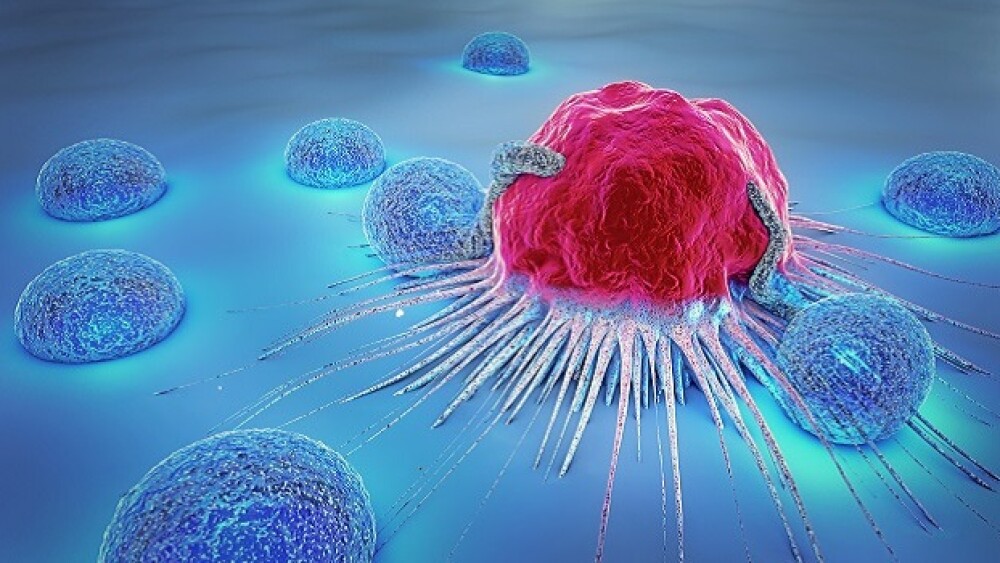According to the American Cancer Society, almost 601,000 people in the U.S. died of cancer in 2017. The two most common types of cancer are lung cancer and breast cancer, followed by colorectal cancer, prostate cancer and stomach cancer.
According to the American Cancer Society, almost 601,000 people in the U.S. died of cancer in 2017. The two most common types of cancer are lung cancer and breast cancer, followed by colorectal cancer, prostate cancer and stomach cancer.
In many ways, it’s far more complicated than that. Increasingly, biopharma companies develop treatments for specific subpopulations of cancer. For example, AstraZeneca’s Tagrisso (osimertinib) was approved in April 2018 by the Food and Drug Administration (FDA) as a first-line treatment for metastatic non-small cell lung cancer (NSCLC) that have specific exon 19 deletions or exon 21 L858R mutations, which are detected by an FDA-approved test.
Let’s look at some of the cancer drugs that have been approved by the FDA since the beginning of 2017 for these top 2 cancers. One thing that will jump out at readers is the ways in which companies are developing drugs (or at least seeking approvals) for narrower and narrower indications, and the ongoing battle among pharma companies to get their drugs approved for first-line treatment, in addition to second and third-line treatments.
Lung Cancer
In March 2017, FDA approved AstraZeneca’s Tagrisso (osimertinib) for metastatic epidermal growth factor receptor (EGFR) T790M mutation-positive NSCLC as detected by an FDA-approved test, whose disease has progressed on or after EGFR tyrosine kinase inhibitor (TKI) therapy.
The agency approved Takeda Pharmaceutical and ARIAD Pharmaceuticals’ Alunbrig (brigatinib) in April 2018 for metastatic anaplastic lymphoma kinase (ALK)+ NSCLC that has progressed on or are intolerant to crizotinib.
In May 2018, the agency granted accelerated approval to Merck & Co.’s Keytruda (pembrolizumab) in combination with pemetrexed and carboplatin for patients with previously untreated metastatic non-squamous NSCLC.
Also in May, FDA approved Novartis’ Zykadia (ceritinib) for metastatic NSCLC whose tumors are ALK+.
In June 2017, the FDA approved Novartis’ Tafinlar (dabrafenib) and Mekinist (trametinib) in combination in metastatic NSCLC with BRAF V600E mutation detected by an FDA-approved test.
In January 2018, Boehringer Ingelheim’s Gilotrif (afatinib) was approved for a broadened indication in first-line treatment for metastatic NSCLC whose tumors have non-resistant EGFR mutations detected by an FDA-approved test.
In April, FDA approved AstraZeneca’s Tagrisso (osimertinib) for first-line treatment of metastatic NSCLC tumors with EGFR exon 19 deletions or exon 21 L858R mutations detected on a test.
In August, Bristol-Myers Squibb’s Opdivo (nivolumab) was approved in patients with metastatic small cell lung cancer (SCLC) with progression after platinum-based chemotherapy and at least one other line of therapy.
In August, Merck’s Keytruda in combination with pemetrexed and platinum as first-line treatment was approved in patients with metastatic-nonsquamous NSCLC with no EGFR or ALK tumor aberrations.
In September, the agency approved Pfizer’s Vizimpro (dacomitinib) for first-line treatment of NSCLC with EGFR exon 19 deletion or exon 21 L858R substitution mutations.
In October 2018, the agency approved Merck’s Keytruda in combination with carboplatin and either paclitaxel or nab-paclitaxel as first-line treatment of metastatic squamous NSCLC.
And on November 2, FDA approved Pfizer’s Lorbrena (lorlatinib) for patients with ALK+ metastatic NSCLC whose disease has progressed on crizotinib and at least one other ALK inhibitor for metastatic disease or whose disease has progressed on alectinib or ceritinib as the first ALK inhibitor therapy for metastatic disease.
Breast Cancer
In March 2017, the agency approved Novartis’ Kisqali (ribociclib) in combination with an aromatase inhibitor as initial endocrine-based treatment of postmenopausal women with hormone receptor (HR)-positive, human epidermal growth factor receptor 2 (HER2)-negative advanced or metastatic breast cancer.
In the same month, FDA approved Pfizer’s Ibrance (palbociclib) for HR+, HER2- advanced or metastatic breast cancer in combination with an aromatase inhibitor as initial endocrine-based therapy in postmenopausal women.
In July 2017, FDA approved Puma Biotechnology’s Nerlynx (neratinib) for the extended adjuvant treatment of adults with early-stage HER2-overexpressed/amplified breast cancer, which was to follow adjuvant trastuzumab-based treatment.
In September 2017, the agency approved Eli Lilly and Company‘s Verzenio (abemaciclib) in combination with fulvestrant for HR+, HER2- advanced or metastatic breast cancer with disease progression after endocrine therapy.
Biosimilars are basically generic versions of biologic drugs, although because they are not direct copycats, but rather “similar,” they require an approval process that is similar to that of new branded drugs. In December 2017, FDA approved Mylan’s Ogivri (trastuzumab-dkst) as a biosimilar to Genentech’s Herceptin (trastuzumab) for patients with HER2-overexpressing breast or metastatic stomach cancer.
In the same month, the agency granted Genentech’s Perjeta (pertuzumab) for use in combination with trastuzumab and chemotherapy as adjuvant treatment of HER2+ early breast cancer at high risk of recurrence.
In January 2018, AstraZeneca’s Lymparza (olaparib) was approved for patients with deleterious or suspected deleterious germline BRCA-mutated HER2- metastatic breast cancer who have been treated with chemotherapy either in the neoadjuvant, adjuvant, or metastatic setting.
In February 2018, the agency approved Eli Lilly’s Verzenio (abemaciclib) in combination with an aromatase inhibitor as initial endocrine-based therapy for postmenopausal women with hormone receptor HR+, HER2- advanced or metastatic breast cancer.
In July 2018, Novartis’ Kisqali (ribociclib) was approved in combination with an aromatase inhibitor for pre/perimenopausal women with HER+, HER2- advanced or metastatic breast cancer, as initial endocrine-based therapy.
In October, FDA approved Pfizer’s Talzenna (talazoparib) for patients with deleterious or suspected deleterious germline BRCA-mutated, HER- locally advanced or metastatic breast cancer. The patients must be chosen for therapy based on an FDA-approved companion diagnostic for the drug.
If anything, this should be a reminder of just how innovative and how much progress biopharma is making in its treatment of the two most common types of cancer.





